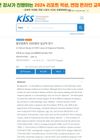 August 2021 in “Revista Colombiana de Reumatología/Revista Colombiana de Reumatologia”
August 2021 in “Revista Colombiana de Reumatología/Revista Colombiana de Reumatologia” Janus kinase inhibitors may effectively treat severe alopecia areata unresponsive to other treatments.
7 citations,
November 2018 in “British Journal of Dermatology” Alopecia areata is caused by immune system issues, and JAK inhibitors might help treat it.
 1 citations,
July 2018 in “Elsevier eBooks”
1 citations,
July 2018 in “Elsevier eBooks” Alopecia Areata is an autoimmune hair loss condition, with various treatments showing mixed effectiveness and no guaranteed cure.
 20 citations,
June 2010 in “Genes and Immunity”
20 citations,
June 2010 in “Genes and Immunity” Blood tests can help understand the genetic differences in people with alopecia areata, including how severe it is and if it's inherited.
 March 2023 in “PARIPEX INDIAN JOURNAL OF RESEARCH”
March 2023 in “PARIPEX INDIAN JOURNAL OF RESEARCH” Tofacitinib helped regrow hair in most patients with severe hair loss.
 151 citations,
February 2007 in “International Journal of Dermatology”
151 citations,
February 2007 in “International Journal of Dermatology” Alopecia areata causes hair loss, has no cure, and various treatments exist.
 70 citations,
February 2015 in “Expert Opinion on Drug Discovery”
70 citations,
February 2015 in “Expert Opinion on Drug Discovery” Topical drugs and near-infrared light therapy show potential for treating alopecia.
 4 citations,
November 2022 in “Frontiers in Medicine”
4 citations,
November 2022 in “Frontiers in Medicine” People with alopecia areata are more likely to have anxiety and depression and a lower quality of life.
 November 2024 in “Journal of Cosmetic Dermatology”
November 2024 in “Journal of Cosmetic Dermatology” Baricitinib is effective for severe alopecia areata but has some side effects.
 40 citations,
September 2018 in “Journal of the American Academy of Dermatology”
40 citations,
September 2018 in “Journal of the American Academy of Dermatology” Tofacitinib helped some young children with severe hair loss grow their hair back without bad side effects.
 April 2012 in “Informa Healthcare eBooks”
April 2012 in “Informa Healthcare eBooks” Alopecia areata is a common autoimmune condition causing varying hair loss, diagnosed by specific patterns of inflammation around hair follicles, with several treatment options available.
 October 2023 in “Skin health and disease”
October 2023 in “Skin health and disease” Alopecia areata costs individuals about 3% of their income, with women, Asians, those with lower income, and more severe symptoms spending more.
 24 citations,
January 2008 in “KARGER eBooks”
24 citations,
January 2008 in “KARGER eBooks” The document concludes that ongoing research using animal models is crucial for better understanding and treating Alopecia Areata.

Current treatments for alopecia areata often fail to achieve and maintain significant hair regrowth.
 5 citations,
July 2020 in “Curēus”
5 citations,
July 2020 in “Curēus” Beard hair loss can signal early diabetes and thyroid issues, treatable with specific cream.
 10 citations,
March 2007 in “Skinmed”
10 citations,
March 2007 in “Skinmed” The conclusion is that in the Indian subcontinent, socioeconomic status, stress, and family structure affect the severity of alopecia areata, and its psychological impact is generally mild or moderate.
138 citations,
March 2021 in “Journal of the American Academy of Dermatology” Ritlecitinib and brepocitinib effectively regrow hair in alopecia areata patients.
 January 2000 in “대한피부과학회지”
January 2000 in “대한피부과학회지” Hair loss was most commonly due to alopecia areata, androgenetic alopecia, and telogen effluvium, with a higher number of cases in the 1990s and equal occurrence in men and women.
 August 2024 in “Frontiers in Public Health”
August 2024 in “Frontiers in Public Health” Alopecia Areata severely impacts mental health, causing anxiety and depression, affecting quality of life.
15 citations,
January 2023 in “Antioxidants” Oxidative stress plays a significant role in alopecia areata, and new treatments may include JAK inhibitors and antioxidants.
 March 2018 in “Trends in Immunotherapy”
March 2018 in “Trends in Immunotherapy” Combining triamcinolone acetonide with immunotherapy can help regrow hair in some alopecia totalis patients.

Baricitinib is a new, effective treatment for advanced alopecia areata but is costly and has risks.
 November 2020 in “Bali Medical Journal”
November 2020 in “Bali Medical Journal” PRP may help hair growth in alopecia areata without major side effects, but more research is needed.
 33 citations,
December 2005 in “Archives of dermatology”
33 citations,
December 2005 in “Archives of dermatology” Alefacept showed some effectiveness for alopecia areata but needs more research.
30 citations,
January 1999 in “Dermatology” Cyclosporine A can help some people with severe alopecia areata regrow hair.
 January 2025 in “Balkan Medical Journal”
January 2025 in “Balkan Medical Journal” Baricitinib helps regrow hair in severe alopecia areata and is safe, but more research is needed.
March 2020 in “QJM: An International Journal of Medicine” Standard intralesional corticosteroids are the best treatment for patchy alopecia areata.
 2 citations,
January 2023 in “Prague Medical Report”
2 citations,
January 2023 in “Prague Medical Report” JAK inhibitors, like baricitinib, are effective and safe for treating alopecia areata.
 44 citations,
February 2015 in “Journal of the American Academy of Dermatology”
44 citations,
February 2015 in “Journal of the American Academy of Dermatology” Combining diphenylcyclopropenone with anthralin is more effective for hair regrowth in alopecia areata than using diphenylcyclopropenone alone, but may cause more side effects.
June 1986 in “Journal of the American Academy of Dermatology” Topical minoxidil showed promise for early male pattern baldness.
























